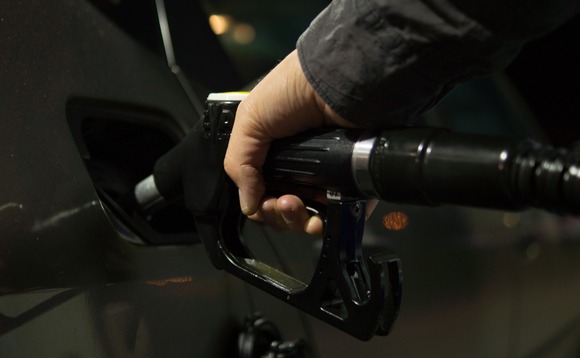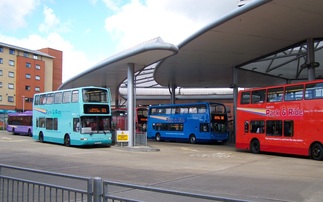Report from ECIU warns a slower rollout of new electric vehicles could put brakes on motorists switching via the second-hand market – costing drivers £800 a year in higher fuel costs
A shortage of small and mid-sized electric vehicles (EVs) on the second-hand market could hinder drivers efforts to switch to plug-in models leaving them stuck with £9bn in additional fuel costs as they continue running petrol cars, according to a new report.
A new analysis from the Energy and Climate Intelligence Unit (ECIU) assesses the impact of the government's proposed Zero Emission Vehicle (ZEV) Mandate, which would require manufacturers to ensure an increasing proportion of the cars they sell in the coming years are electric.
The government is yet to confirm the final details of the ZEV Mandate, despite it being expected to come into force from next year. But the ECIU warned the government's proposed trajectory for increasing the share of new EVs on the market is slower than the 'high' demand scenario set out by the car industry.
As such, the report calculates that the slower roll out of new EVs would reduce the number of vehicles reaching the second-hand market, leaving drivers unable to afford new models paying between £500 and £800 a year more in fuel costs as they persevere with petrol alternatives.
The report - titled The UK's second-hand electric vehicle market - calculated some 2.1 million fewer affordable small and mid-sized EVs could be made available for resale, saddling drivers with an extra £9bn in fuel costs.
More than four-in-five households buy their cars from the second-hand market, with the likes of hatchbacks, saloons, and MPVs accounting for the majority of sales.
According to the government's Common Misconceptions About Electric Vehicles document from July 2022, while EVs cost more to buy outright, they can save £176 in running costs for every 1,000 miles driven - costing as little as 2p a mile when charging on off-peak electricity versus more than 20p per mile for petrol and diesel.
Fewer moving parts also cut maintenance costs, which combined with tax incentives can save drivers up to £2,000 per year.
ECIU transport analyst Colin Walker said that even with record high electricity costs driven up by the gas crisis, EVs are still around three times cheaper to run than their petrol equivalents, based on analysis of best-selling small EVs, such as the Nissan Leaf and Renault Zoe.
"With 82 per cent of car sales in the UK being second-hand, this market is critical if many more families across the UK are going to be able to access these savings," he said. "If government policy on new EVs goes slow, the growth of the second-hand EV market will be held back potentially consigning families to more expensive motoring".
The ECIU today also warned that with demand for EVs exceeding supply, the UK and EU could find themselves competing for those EVs that manufacturers are able to produce.
In contrast, if the UK sets higher targets for its ZEV mandate than those being drawn up in the EU, it could see manufacturers choosing to sell more of their EV stock in the UK, enabling more British motorists to switch away from the higher driving costs associated with petrol cars.
ECIU's analysis echoes recent comments from Jeremy Yapp, head of flexible energy systems at BEAMA - the UK trade association for manufacturers and providers of energy infrastructure technologies and systems - who claimed the supply of EVs remained the main constraint on the transition to zero emission motoring.
"The carmakers need to catch up with us," he said. "When there is a very, very short waiting list or no waiting list for electric vehicles, and when there is a waiting list for a piece of charging infrastructure, then we're getting left behind.
"But at the moment this is a supply constrained market, so there are not enough electric vehicles to meet the demands of motorists who want more vehicles."
The Department for Transport was considering a request for comment at the time of going to press.
The report comes on the same day as The Times reported that a senior figure at Japanese carmaker Honda has warned the government risks creating a "chaotic fiasco" if it delays the introduction of its ZEV Mandate for auto manufacturers.
In a post on LinkedIn, Patrick Keating, who runs European government affairs at Honda, said the "political inertia" was "very frustrating". "The delays risk the ZEV mandate roll-out becoming a chaotic fiasco," he said in comments reported by The Times.










